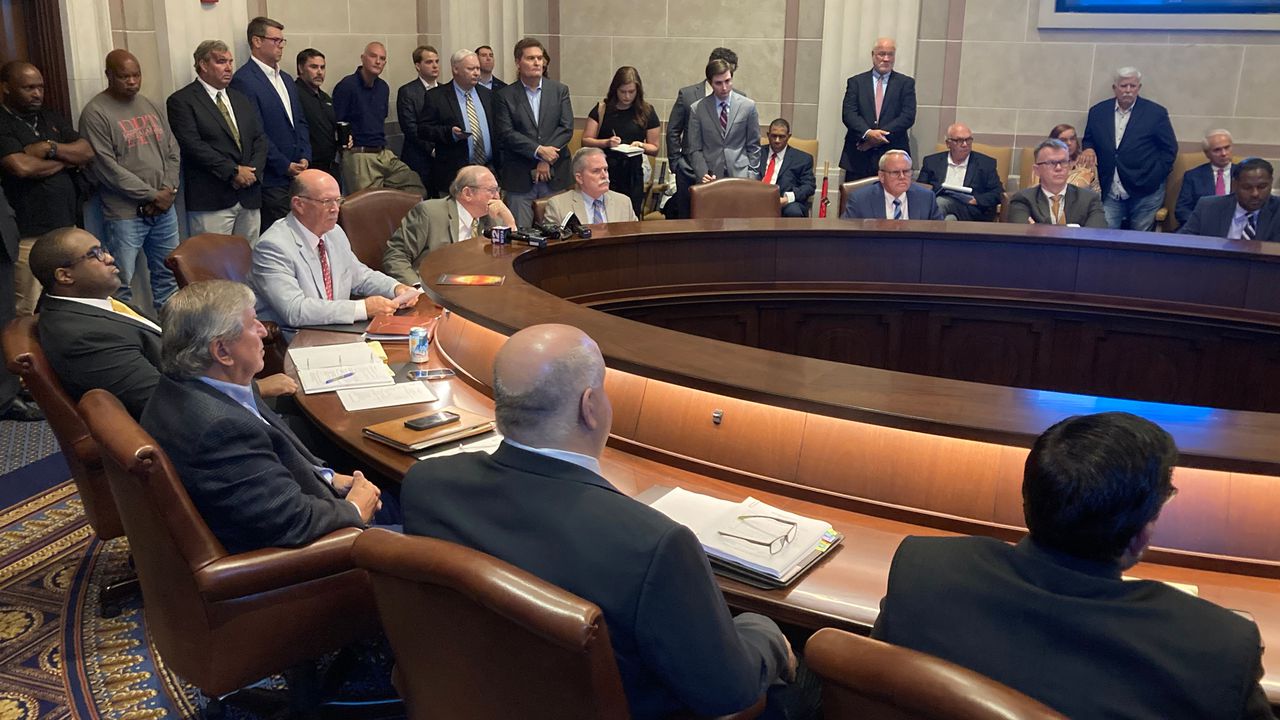Judge to consider request to block medical cannabis licenses
A Montgomery judge will hold a hearing Thursday on the request by two companies denied licenses by the Alabama Medical Cannabis Commission to put a hold on the licensing process.
Alabama Always LLC filed its motion Tuesday, alleging the AMCC violated the Open Meetings Act by deliberating and picking nominees for license awards during an executive session, or closed portion of its August 10 meeting.
Capitol Medical LLC filed the same request with the court on Wednesday, supporting the facts and arguments in the Alabama Always claim.
Both companies are seeking a temporary restraining order and preliminary injunction to stop the licensing process.
Also on Wednesday, the AMCC filed with the court an affidavit from AMCC Chairman Rex Vaughn in response to the allegations of violating the Open Meetings Act.
The AMCC awarded licenses to 24 companies out of 90 that applied at the August 10 meeting.
Vaughn’s affidavit describes the three-hour closed portion of the meeting. Vaughn said the commissioners stuck with the topics that AMCC attorney William Webster declared before the commissioners voted to go into executive session.
The purpose of the August 10 meeting was to award licenses to companies to cultivate, process, transport, test, and dispense medical cannabis, and integrated licenses to companies performing several of those functions.
The AMCC had awarded 21 licenses on June 12 but never issued those licenses after discovering mistakes in the tabulation of scores used to rank the applicants.
The purpose of the August 10 meeting was to redo the license awards. Shortly after the meeting started, the AMCC voted to go into executive session.
The Alabama Open Meetings Act allows public boards to close their meetings for certain purposes. Before the vote to close the meeting, Webster said the commissioners would be discussing the “general reputation, character, and professional competence of individuals,” and legal ramifications and options about ongoing lawsuits and imminently likely lawsuits.
In Vaughn’s affidavit, the chairman said that during the closed session the AMCC met with representatives of the University of South Alabama and the accounting firm KPMG about the mistakes made in calculating application scores for the June 12 meeting. USA had recruited evaluators to assign the scores.
Vaughn said the USA officials gave a presentation on how corrections were made and verified by KPMG. Vaughn said it was substantially the same presentation the USA officials gave during the public portion of the meeting later that day.
Vaughn’s affidavit says Webster advised the commissioners on legal matters during the closed portion of the meeting. Vaughn said the AMCC did not deliberate on actions it would take on litigation.
Also during the closed portion of the meeting, Vaughn said the commissioners reviewed each category of license applications and shared information gathered from AMCC staff, their reviews of the applications, and their own investigations. He said those matters pertained to the “general reputation, character, and professional competence” of the applicants.
Vaughn’s affidavit says at the conclusion of the closed portion of the meeting, the commissioners were asked to write down their nominees in each of the six licensing categories.
When the public portion of the meeting resumed, the AMCC staff collected the nominations and compiled a list.
The AMCC then accepted nominations on the floor and voted on the nominees by category, one-by-one.
“No voting was done secretly, nor by ‘secret ballot,’ either in Executive Session or otherwise,” Vaughn said in the affidavit.
Lawyers for Alabama Always said in their motion on Tuesday that the AMCC continued a pattern of not allowing the license applicants or the public access to the deliberations that led to their decisions.
“By holding all discussion and deliberation in executive sessions, the Commission has denied, and has publicly stated its intention to continue to deny, Alabama Always and others their rights to observe the deliberations for this licensing process,” attorneys for Alabama Always wrote in their request for a preliminary injunction.
Meanwhile, a company that was awarded a cultivator license on August 10 filed a motion in the lawsuit on Wednesday.
CRC of Alabama opposes the motion to block all the licenses. The company’s lawyers told the court that any controversy over license awards was limited to the integrated licensee category. They said companies awarded licenses as cultivators, processors, transporters, and testing labs should not be affected.
After the August 10 meeting, companies awarded licenses had two weeks to pay their licensing fee. Vaughn said the AMCC would begin an investigative phase to determine if those awarded licenses met the qualifications claimed in their applications before issuing the licenses.
Companies not awarded licenses had 14 days after August 10 to request an investigative hearing with the AMCC.
Montgomery County Circuit Judge James Anderson scheduled a hearing Thursday at 1:30 p.m.
